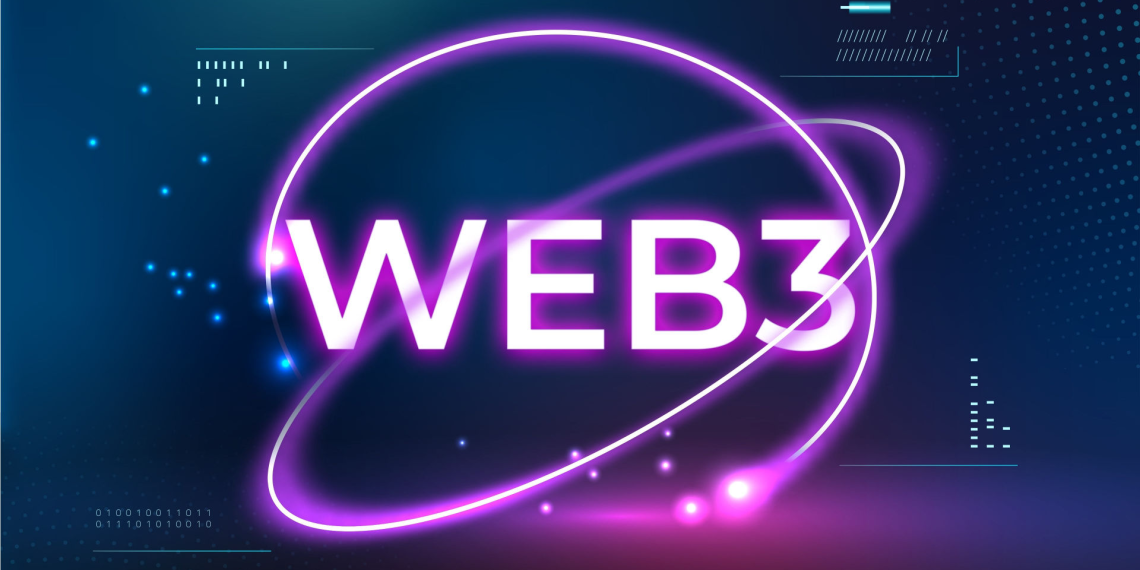Introduction
In today’s fast-paced corporate world, businesses are constantly seeking innovative solutions to improve efficiency and security. The emergence of Web3 technology, built on the principles of decentralization and blockchain, presents exciting opportunities for corporate offices to transform their operations.
This article explores the concept of a Web3-enabled corporate office and how it can enhance efficiency and security while maintaining data integrity and trust. Additionally, companies can leverage the expertise of a leading Web3 development company Dubai to implement these cutting-edge solutions seamlessly. By collaborating with a specialized Web3 development company in Dubai, businesses can tap into the region’s technological prowess and stay at the forefront of this digital revolution.
Understanding Web3 Technology
Web3 refers to the third generation of the internet, which introduces decentralized applications (dApps) and blockchain technology into various sectors. Unlike traditional Web2 applications, Web3 operates on a peer-to-peer network, allowing direct interactions between users without intermediaries. The core principles of Web3 include transparency, decentralization, and user ownership of data.
The Benefits of a Web3-Enabled Corporate Office
- Improved Data Security
One of the most significant advantages of adopting Web3 in a corporate office is the enhanced data security. Traditional centralized databases are susceptible to cyberattacks and data breaches, putting sensitive corporate information at risk. Web3 utilizes blockchain technology, which encrypts and distributes data across a network of nodes, making it virtually impossible for hackers to manipulate or steal data.
- Enhanced Efficiency and Productivity
Web3 solutions can streamline numerous business processes, leading to increased efficiency and productivity. Smart contracts, for instance, automate contract execution and eliminate the need for intermediaries, reducing transaction time and costs. Moreover, decentralized file storage ensures easy access and sharing of documents, improving collaboration among teams.
- Transparent and Trustworthy Transactions
Transparency and trust are crucial in any business environment. Web3 facilitates transparent transactions through blockchain’s immutable ledger, where all transactions are recorded and accessible to relevant parties. This fosters trust among stakeholders and reduces the potential for fraudulent activities.
Also Read: The Future Of Logistics And Supply Chains: How Web3 Is Changing The Game
Implementing Web3 Solutions in the Corporate Environment
- Decentralized File Storage
Decentralized file storage systems, such as IPFS (InterPlanetary File System), offer a secure and efficient way to store and share data within the corporate office. By eliminating the reliance on a central server, businesses can mitigate the risk of data loss and unauthorized access.
- Smart Contracts for Business Processes
Smart contracts are self-executing contracts with predefined conditions and terms. Integrating smart contracts into various business processes automates tasks, reduces administrative overhead, and ensures accurate and timely execution of agreements.
- Identity and Access Management on the Blockchain
Web3 enables secure and decentralized identity management. Employees can have control over their digital identities, reducing the risk of identity theft and ensuring only authorized personnel access sensitive corporate information.
- Supply Chain Management with Web3
Blockchain technology can revolutionize supply chain management by providing end-to-end visibility and traceability of products. This transparency allows businesses to identify and address inefficiencies and maintain the integrity of their supply chain.
- Web3-Based Communication and Collaboration Tools
Web3-powered communication and collaboration tools offer secure and private channels for internal and external communication. These tools ensure that sensitive information remains confidential and prevent unauthorized access to corporate communications.
Overcoming Challenges in Adopting Web3
- Regulatory Compliance
As Web3 technology is relatively new, companies must navigate regulatory frameworks that may not fully encompass decentralized systems. Engaging with legal experts and industry regulators is essential to ensure compliance with existing laws.
- Integration with Existing Systems
Integrating Web3 solutions with legacy systems can be complex. Careful planning and gradual implementation can minimize disruptions and allow for a seamless transition to Web3-enabled processes.
- User Education and Training
Adopting Web3 requires educating employees about the technology and its benefits. Companies should invest in comprehensive training programs to empower their workforce to embrace Web3 solutions confidently.
Real-World Examples of Web3-Enabled Corporate Offices
Several forward-thinking companies have already integrated Web3 solutions into their operations. For example, a multinational supply chain company uses blockchain technology to track products’ journeys from origin to destination, ensuring authenticity and quality throughout the supply chain.
The Future of Web3 in Corporate Environments
The future of Web3 in corporate environments looks promising. As technology advances and becomes more accessible, we can expect to see a wider adoption of Web3 solutions across industries, further enhancing efficiency and security.
Also Read: Web3 Smart Contracts: Enhancing Security and Efficiency in E-commerce Transactions
Conclusion
Embracing Web3 technology opens up a world of possibilities for corporate offices seeking efficiency and security. By leveraging decentralized solutions and blockchain’s immutable nature, businesses can optimize their processes, safeguard data, and foster trust among stakeholders. The journey to a Web3-enabled corporate office might have its challenges, but the rewards in terms of improved efficiency and heightened security are undoubtedly worth the effort.







